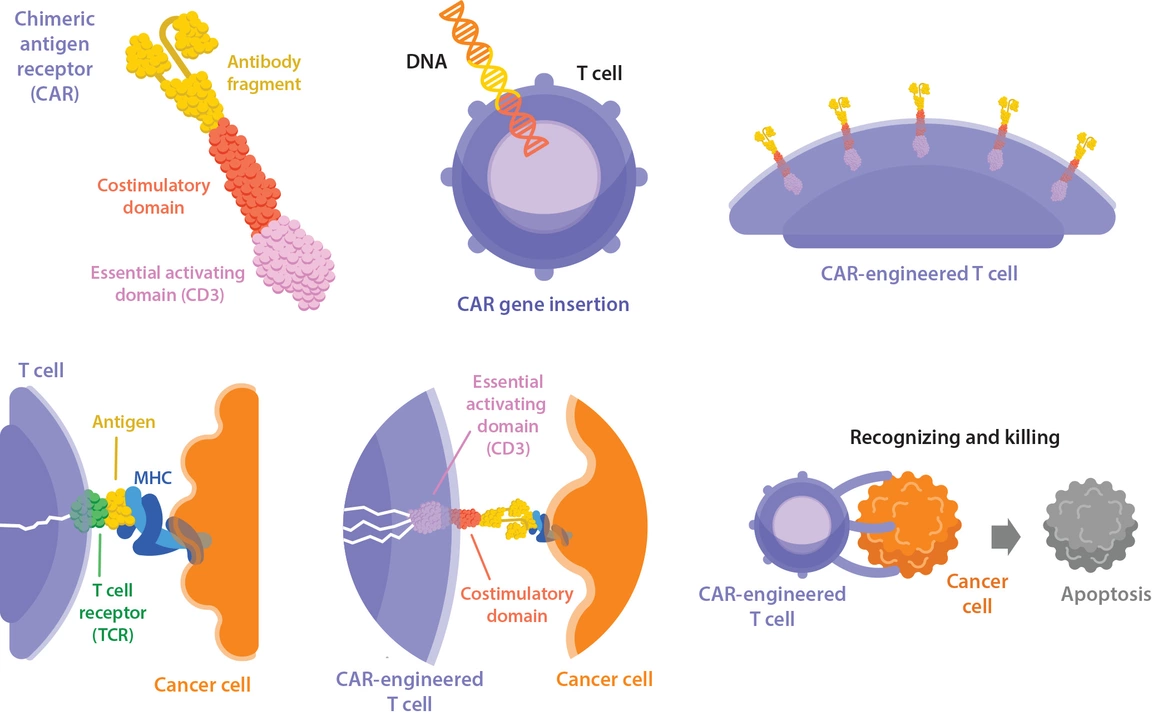Immunotherapy: What It Is and Why It Matters
Immunotherapy is changing how we treat diseases by using your own immune system as a tool. It’s not one single drug or procedure — it’s a group of treatments that either boost the immune response or teach it to recognize specific targets, like cancer cells or allergens. If you’re considering immunotherapy, knowing the basics helps you ask the right questions and spot warning signs fast.
Main types of immunotherapy
Cancer immunotherapy: Includes checkpoint inhibitors (they free immune cells to attack tumors), CAR‑T cell therapy (engineered immune cells), and monoclonal antibodies (targeted proteins). These can produce strong results but may also cause immune-related side effects.
Allergy immunotherapy: Given as allergy shots or sublingual tablets. It trains the immune system to tolerate allergens over months to years. People with seasonal allergies, pet allergies, or venom allergies often use this when meds alone don’t work.
Vaccine-based approaches: Some vaccines prevent disease (like HPV). Others are therapeutic vaccines for cancer; they teach the immune system to spot tumor markers and respond more strongly.
What to expect during treatment
Timing varies. Allergy shots need regular visits for years. Cancer immunotherapy can be a few infusions spread over months or ongoing maintenance doses. Some treatments work quickly, others take time to show effect.
Side effects can be mild (fatigue, rash, injection site pain) or serious (organ inflammation, severe allergic reactions, cytokine release with CAR‑T). Always report new symptoms like fever, severe diarrhea, shortness of breath, or unusual pain immediately.
Who’s a candidate? That depends on the condition and test results. For cancer, doctors look at tumor markers, genetic tests, and previous treatments. For allergies, testing shows which allergens trigger your symptoms and whether immunotherapy could help long term.
Costs and access: Immunotherapy can be expensive. Insurance often covers many cancer immunotherapies but may limit coverage for newer or off-label uses. Allergy shots are usually covered, but check copays, visit frequency, and travel time.
How to choose a clinic: For cancer, pick a center with experience in immunotherapy and a clear plan for monitoring side effects. For allergies, choose a clinic that offers both shot and sublingual options and explains the timeline upfront.
Questions to ask your doctor: What result should I expect and when? What are the main risks and how do you manage them? How long will treatment last? What tests will you run during follow-up? Who do I call for urgent side effects?
Final practical tips: bring a friend to appointments, keep a symptom diary, avoid starting new supplements without checking, and follow monitoring schedules strictly. Immunotherapy can be powerful, but it needs careful follow-through.
If you want links to patient guides, clinical trials, or support groups, your treatment team can point you to reliable resources based on your diagnosis. Ask for printed instructions before you leave the clinic — and keep them handy.

